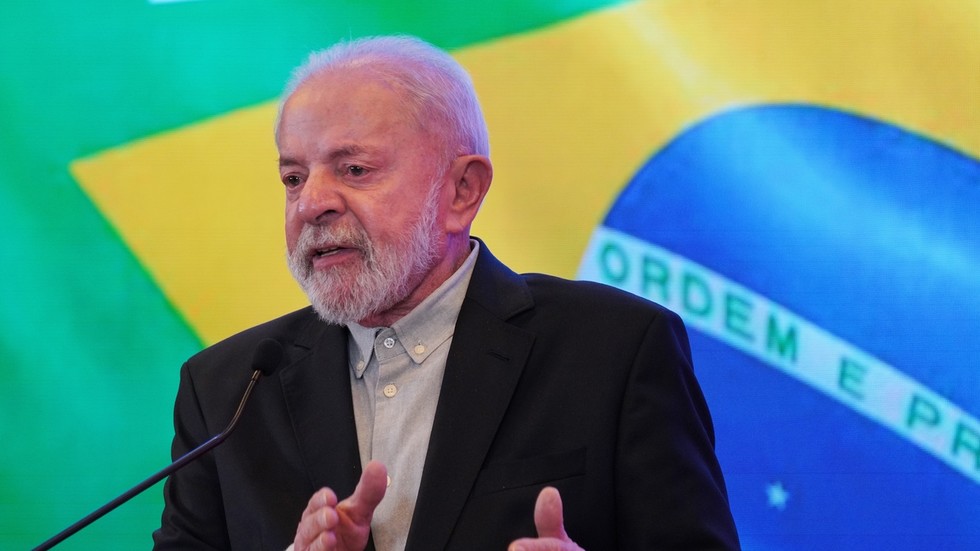A small country alone has no bargaining power against the US, the Brazilian president said
Brazil will discuss a response to US President Donald Trump’s tariffs with other BRICS nations, Brazilian President Luiz Inacio Lula da Silva told Reuters in an interview published on Wednesday.
Earlier in the day, Trump announced he would raise tariffs on India – another founding BRICS nation – to 50% by late August. Trump already levied 50% duties on Brazilian goods earlier this month in a move that Brasilia condemned as an illegal attempt to politically influence its internal policy.
Lula said he will reach out to other BRICS nations and discuss how to tackle the tariffs. In addition, he said he would reach out to his Chinese and Indian counterparts Xi Jinping and Narendra Modi, followed by other leaders, Reuters wrote.
“I’m going to try to discuss with them about how each one is doing in this situation, what the implications are for each country, so we can make a decision,” Lula said.
According to the Brazilian leader, Trump is attempting to “dismantle multilateralism,” and “unilateralism, where he negotiates one-on-one with other countries,” where the US has the advantage.
“What bargaining power does a small Latin American country have against the United States? None,” Lula said.
BRICS was founded by Brazil, Russia, India and China in 2006, and were joined by South Africa four years later. Having expanded in membership since, the bloc has now surpassed the G7 in terms of combined GDP.
Trump has previously threatened BRICS members with additional 10% tariffs, accusing them of a concerted effort to sabotage the dollar as the global reserve currency. BRICS nations have denied this, and argued that Washington’s own foreign policy undermines the greenback.
The US president has also threatened to impose further tariffs on Russian trade partners – the biggest of which are BRICS partner nations – to pressure Moscow into accepting a ceasefire deal in the Ukraine conflict.
Washington could also levy heavier tariffs on China, currently the biggest purchaser of Russian oil, Trump said on Wednesday.
Both Beijing and New Delhi have vowed to defend their sovereign interests in the face of US levy hikes.
You can share this story on social media:
Read the full article here

